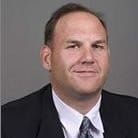Companies are becoming increasingly aware of how the social conditions of their people impact workplace well-being. These social determinants of health –such as economic insecurity, housing and education – can often be more important than health care in influencing health outcomes.
Now, as inflation rises and healthcare costs increase, social determinants are playing an even greater role, putting more people in the vulnerable position between incurring confusing medical debt or avoiding care and disengaging with the healthcare system entirely.
According to a Gallup and West Health study, the percentage of U.S. adults who report forgoing treatment for a health problem in the prior three months due to the cost of care has increased to 30%. This crisis is aggravated by personal finance hardships, with 69% of Americans living paycheck to paycheck, according to the American Payroll Association. Additionally, 49% of Americans can’t cover a $400 emergency expense, up from 32% in November.
As the share of the total cost of care continues to grow for people whose employers are increasingly relying on high deductible health plans, the consequences of cost avoidance due to confusion and complexity are raising the stakes for providers as well.
Recently, relief for these challenges is coming from an unexpected source: modernized health care billing. Healthcare costs are a major financial burden for people. It is exacerbated by a medical billing system that has become increasingly complex, costly and confusing for people who just want to know how much they owe for the care they are provided and find ways to finance the costs.
Long bills and complicated Explanation of Benefits (EOBs) do little to shed light on what a person owes or doesn’t owe. That’s why many just disengage rather than try to understand the complicated medical billing process, or risk the negative impact that medical debt can have on their lives. The disturbing trend expands into individuals cutting back on medications to treat chronic conditions or putting off life-saving screenings in fear of rigid and complex medical bills.
New approaches to medical billing can help these economically and socially vulnerable people in a number of ways. First, new billing platforms can pay for the cost of the patient invoice to the provider upfront and then assume the extended payment relationship with the patient. Some platforms provide credit for out-of-pocket costs at low to no interest and construct a payment schedule that fits the person’s needs, regardless of their credit history. This is important for consumer who otherwise would rely on high interest credit cards to pay their medical bills or generally have trouble getting credit. By covering patients’ medical bills up to their full out-of-pocket maximum, patients can be redirected to a flexible payment plan that fits their budget, simple and stress-free.
Next, simplify the patient billing experience. Most billing information people receive is disaggregated, repetitive and not very useful for understanding their payment situation. People end up being confused and frustrated when they try to get answers about what they owe to the providers who are trying to collect. Worse yet, this confusion has negative consequences for vulnerable patients’ own care, with many putting off scheduling an appointment with their caregivers, or forgoing a prescription filled due to the uncertainty. As patients delay making necessary and preventative appointments, as well as not taking their medications, it will inevitably lead to more expensive, emergent needs for care.
Lastly, new medical billing systems can benefit economically vulnerable people by eliminating the stress of bill collections. They no longer fall behind on bills thanks to affordable, flexible payment schedules. And providers no longer need to chase them after services are provided or demand payment before delivering care. It eliminates collection costs and risk of bad debt, allowing them to focus on care for more disadvantaged patients.
Final thoughts
Social determinants of health are the non-medical factors that influence health outcomes. Addressing these social determinants is critical for improving health and reducing inequities in health across vulnerable populations. Reinventing the medical billing system to make it fair, affordable and simple to understand is an important first step in achieving health care equity.
Brian Marsella is President of HPS/Paymedix. He has been in the healthcare industry for 30 years and has gained significant experience across many disciplines (underwriting, client management, sales, marketing, product, consulting, senior leadership, network management, board leadership and community engagement). His background has allowed him to develop an extensive network and understanding of how buying decisions are made by employers, carriers and consultants. His passion to enhance the way in which healthcare is evaluated, consumed and delivered is evident in the challenges he has taken on in the past and what he will be looking to impact moving forward.

Brian Marsella
Brian Marsella is President of HPS/Paymedix. He has been in the healthcare industry for 30 years and has gained significant experience across many disciplines (underwriting, client management, sales, marketing, product, consulting, senior leadership, network management, board leadership and community engagement). His background has allowed him to develop an extensive network and understanding of how buying decisions are made by employers, carriers and consultants. His passion to enhance the way in which healthcare is evaluated, consumed and delivered is evident in the challenges he has taken on in the past and what he will be looking to impact moving forward.







